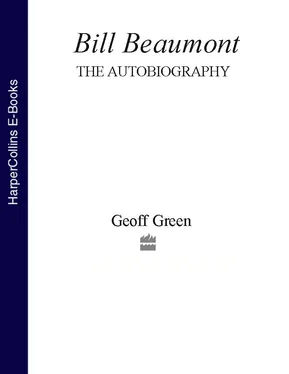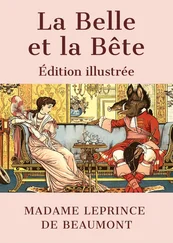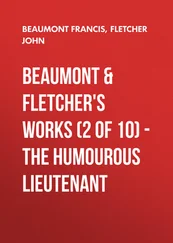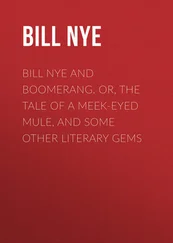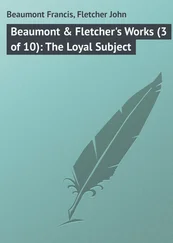CHAPTER ONE
Childhood, school and family life
If the meeting with Allan Hosie at The Drum and Monkey was fairly critical for the wellbeing of English rugby, the meeting between my parents and doctors at Preston Royal Infirmary shortly after my birth on 9 March 1952 was even more critical for the wellbeing of William Blackledge Beaumont. I had arrived somewhat prematurely by Caesarean section and, within days, had gone down with pneumonia. My chances of surviving beyond a few more days were deemed to be so minimal that I was actually christened in hospital as it was felt that I would never make it to a church. Not much of a vote of confidence for someone who, despite arriving a month earlier than expected, had still weighed in at a pretty healthy-sounding nine pounds.
The will to ‘hang on in there’ must have been pretty strong, even at that early age, because I confounded medical opinion by coming through the crisis, aided by a new drug so revolutionary that doctors had to obtain permission from the Ministry of Health in order to administer it to me. That wasn’t the end of my medical saga, unfortunately. Hospital staff expressed concern that I couldn’t keep anything down and was throwing up with messy regularity. If they were puzzled by this phenomenon, my mother certainly wasn’t. Having seen it all before, she was able to make an instant diagnosis: I was suffering from a hereditary condition – that had also afflicted her brother – known as Pyloric Stenosis, which occurs when a skin forms between the gullet and the stomach, preventing anything from being digested. A fairly simple operation rectified that little problem – my uncle had been less fortunate, spending his first 12 months being fed minute amounts of food on a tiny salt spoon.
My wife Hilary and I have three sons and, thankfully, none of them inherited the condition. Quite the contrary, they’ve never had a problem digesting anything and have been eating us out of house and home ever since!
So, after a longer than average sojourn in the hospital’s baby unit, I finally made it to the family home in Adlington to join my parents, Ron and Joyce, and sister Alison. She was two years my senior and brother Joe arrived four years after me.
Adlington was a working Lancashire village where everyone seemed to be employed at either the local weaving mills or at Leonard Fairclough’s, a large construction company responsible, at that time, for building bridges on the new motorways that were mushrooming all over the place. It was a small community and we were a tight-knit family with our own lives tending to revolve around the family textile business – a cotton and weaving mill founded in nearby Chorley by my great grandfather, Joseph Blackledge, in 1888.
My mother’s family, the Blackledges, had always made their way in the commercial world but the Beaumonts were academics. A succession of teachers, who had the unenviable task of trying to impart knowledge to a largely unresponsive pupil, would suggest that I leaned more towards my mother’s side of the family, despite the fact that my paternal grandparents were themselves both teachers. My grandfather, Harry Beaumont, had started teaching at Blackpool Grammar School – the Alma Mater of my old adversary and friend Roger Uttley – after the First World War and started a rugby team called the Bantams. He had been badly wounded fighting in Mesopotamia, now Iraq, and was awarded the Military Cross. My father carried on the academic tradition by winning a place at Cambridge University after serving in the Royal Navy during the Second World War. He had been put in charge of a motor torpedo boat so maybe it was from him that I acquired my own interest in boats. It all started when the family owned a house on Lake Windermere, and I’ve been messing about in them ever since. When they sold the property some time later we rented cottages in the area for summer holidays, and Hilary and I still keep a caravan on the waterfront in the Lake District because the boys took up my interest in water-skiing, although I spend most of my time in the boat these days. I even ventured back into the world of learning that I spent so much of my youth trying desperately to escape from, in order to study navigation. Lakes are pretty straightforward but I fancy myself as something of a seafarer these days and I reckon it helps if you know what you’re doing!
My grandparents fully expected my father to follow them into teaching once he had graduated from Cambridge but he had other ideas. He chose to go down the commercial route and took a job as a sales representative with a company called Bradford Dyers’ Association, which was a great move from my point of view because he ended up endeavouring to sell his wares at the Blackledge mill in Chorley. He walked in one day hoping to secure a little business but secured a wife instead. My mother had joined the armed forces after leaving school and had experienced an ‘interesting’ war, working as part of the back-up team for our ‘foreign agents’, who would regularly be sent into occupied France and other theatres of the war. Once peace had been restored she had joined the family business and, as luck would have it, was there the day my father popped in.
By that time my father had started playing rugby at Fylde, having also played at Cambridge as an undergraduate. I don’t think he had any great pretensions in the game but, like the majority of players, he was a great enthusiast for the sport and made it as far as the second team. The club played a lot of games in the Manchester area in those days and he used to call in to see my mother on his way back to Blackpool. She wasn’t over keen on rugby at that time and, after they married, he never played again. In any case he was busy because, when he asked my grandfather for my mother’s hand in marriage, he was asked, in turn, when he could start work in the family business. He really threw himself into the job and did a great deal of work on developing the sales side of the business whilst my grandfather and uncle concentrated on manufacturing. The job involved a good deal of travelling and I can recall times when he would go off to Australia on business trips that lasted as long as two months.
Apart from those trips we were always together as a family and, until the age of eight, childhood was an uncomplicated affair that revolved around playing football and cricket in the garden or on the rec with the local lads. We didn’t have a care in the world in those days and the only person who would get upset at times was my father, when our games of football and cricket made a mess of his pride and joy, his garden. He was a budding Alan Titchmarsh, and would spend hours pruning the roses, weeding and continually mowing the lawn – an activity I deemed a complete waste of time although, whilst not inheriting his green fingers, I have been known to tell off my own boys for doing a pretty good job of wrecking our garden.
It is a case of going full circle because the lads have always turned our garden into a rugby, soccer or cricket pitch, according to the season or inclination at the time, and you often can’t move for cricket bats, rugby and soccer balls and golf clubs. Our boys are of the fairly boisterous variety, now rapidly growing into men, and, as they are all into one sport or another, we are now the proud owners of two washing machines and two tumble driers because just one of each simply wouldn’t be enough to cope with the mountains of muddy, sweaty playing kit they manage to accumulate in just 24 hours.
The Blackledges were always heavily into cricket and the game dominates the summer months at the Beaumont homestead, whilst rugby league is a favoured activity in the winter when uncle Jack Partington, who used to play in either halfback position for Broughton Park, Fylde and Lancashire, happily joins in. He hasn’t any children of his own to wear him out so he turns up with boundless energy and goes through a sort of second childhood, which the boys take full advantage of. That takes the pressure off me, allowing me, unless I get roped in, to sneak off and read my newspaper.
Читать дальше
